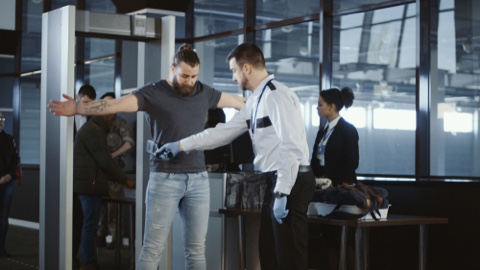
A virtual border agent kiosk has been developed to interview travelers at airports and border crossings with the ability to detect deception and then flag human security agents. The U.S., Canada, and European Union have tested the lie-detecting computer kiosks, and researchers have reported a deception detection success rate of up to 80 percent – better than human agents. The U.S. Department of Homeland Security funded research of the virtual border agent technology – known as the Automated Virtual Agent for Truth Assessments in Real-Time, (AVATAR) – about six years ago. Testing was carried out at the U.S.-Mexico border on travelers who volunteered to participate.
“We’re always consistently above human accuracy,” said Aaron Elkins, an assistant professor in the Fowler College of Business Administration at San Diego State University and a developer of AVATAR, who worked on the technology with a team of researchers that included the University of Arizona. “Generally, the accuracy of humans as judges is about 54 to 60 percent at the most,” he said. “And that’s at our best days. We’re not consistent.”
The AVATAR combines artificial intelligence with various sensors and biometrics that seek to flag individuals who are untruthful or a potential risk based on eye movements or changes in voice, posture and facial gestures. A person steps up to the kiosk, scans his or her passport, and is then interviewed: “Hello, I am AVATAR,” it says. “What do you intend to do after speaking with me today? Have you ever used any other names? In what year were you born? Did you pack your own bag today? Please describe the contents of your bag. What was the name of your high school? Who was the principal at your high school. I would like you to describe everything you did today. . .”
If the system detects deception, it alerts the human agents to do follow-up interviews.
